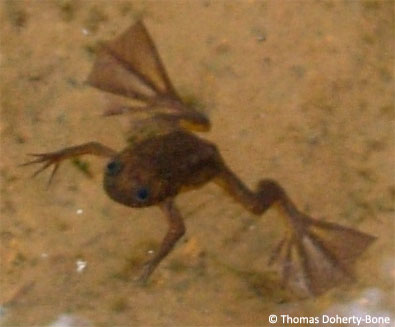Two years ago, for the first time in its 180-year history, the Zoological Society of London launched the Erasmus Darwin Barlow Conservation Expeditions.
The programme’s aim is to attract and nurture zoologists and conservationists of the future. It also acknowledges the impact and far reaching consequences that expeditions have had historically on our understanding of the natural world, not least of all those of Charles Darwin.
The intention is to fund short field surveys to gather information which is required to address a conservation question. The conservation question can be focused on a rare species or their habitat, such as making assessments of the distribution and abundance of animal(s) or the area and quality of their habitats.
In additional to biological and ecological information, expeditions look at the social, economic and institutional issues which are a threat to a particular species or habitat. The expeditions are built on existing knowledge, but focus on gathering new information from the field to answer a clear conservation research question.
These awards are a fitting tribute to the last Dr Erasmus Barlow a Founder Fellow of the Society and also remembered at ZSL for his contribution to the Society in his role as Secretary from 1980 to 1982.
One of the six successful recipients is Thomas Doherty-Bone, whose project is entitled “Conservation research on amphibians unique to Cameroon”. Thomas’ expedition timeframe is 25 September to 30 November 2008.
Project Summary: The Biafran Highlands that extend from Bioko through Cameroon to southern Nigeria harbour many unique species of plants, small mammals, primates and amphibians. One particular region of these mountains occurs in north-west Cameroon and will be the focus of the fieldwork. One of the many endemic amphibians is the Lake Oku Clawed Frog found in only one lake and classified as Critically Endangered by the IUCN, and recently listed on the EDGE programme ranked at 34 out of all amphibian species. Recently mass mortalities of these frogs were witnessed, reminiscent of other species of frog that have either significantly declined or have gone extinct altogether. The causes and impact of these mortalities have still to be determined.
Caecilian amphibians are also represented by several unique species, all of which are poorly understood. Some species have not been recorded since their original discovery decades and even centuries ago. With declines of amphibians a confirmed phenomenon in conservation biology, obtaining information on this unique assemblage of amphibians is now imperative. The main aim of the field study therefore is to carry out research pertinent to the conservation of Cameroon’s unique amphibian fauna, especially the Lake Oku Clawed Frog and endemic caecilians.
Thomas has been blogging about his project for EDGE, so watch this space to learn more about this important expedition and the peculiar species he encounters along the way.
